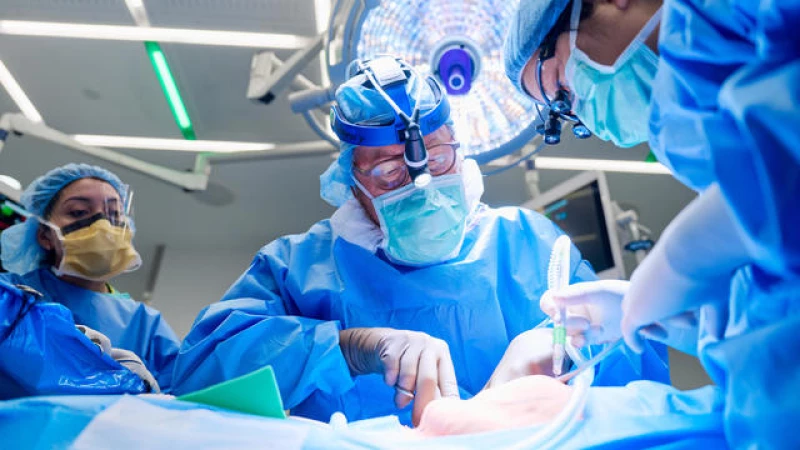Surgeons at NYU Langone Health Perform Groundbreaking Combined Procedure
In a groundbreaking medical achievement, surgeons at NYU Langone Health successfully carried out a combined mechanical heart pump and gene-edited pig kidney transplant for a 54-year-old woman suffering from heart and kidney failure.
Prior to undergoing these innovative procedures earlier this month, Lisa Pisano, a resident of New Jersey, was battling heart failure and end-stage kidney disease, necessitating regular dialysis. Due to her condition, she was not eligible for a human transplant.
"I was pretty much done," Pisano shared with CBS News chief medical correspondent Dr. Jon LaPook, who is also a professor at NYU Langone. "I couldn't go up the stairs. I couldn't drive. I couldn't play with my grandkids. So when this opportunity came to me I was taking it."
Following the successful surgeries, Pisano expressed that she is feeling significantly better, stating that she's "great today compared to other days."
Dr. Robert Montgomery, the director of NYU Langone Transplant Institute, reported that Pisano is currently "doing very well" during her recovery process.
A groundbreaking medical procedure took place at a hospital where Pisano received a gene-edited pig kidney transplant, along with the pig's thymus gland to prevent rejection. The surgery occurred on April 12, following the implantation of a left ventricular assist device on April 4.
Just recently, doctors at a hospital in Boston successfully performed a pig kidney transplant on Rick Slayman, making it the first of its kind in a living human patient.
Historically, xenotransplantation has faced rejection challenges due to the immune system's response to foreign tissue. However, advancements in genetic modification are now offering solutions to improve organ compatibility with humans.
"While the human body typically rejects animal organs, Dr. Montgomery and his team modified a pig kidney to enhance compatibility," explained LaPook.
Montgomery emphasizes that this procedure goes beyond just the organ itself.
"It's not just about sustaining life; it's about restoring their quality of life," he stated.
For Pisano, this means the possibility of reuniting with her grandchildren and engaging in activities she hasn't been able to do for years.
LaPook noted that the procedure was conducted under the FDA's "compassionate use" provision, highlighting the remarkable technological achievement even though it is not yet officially approved.







